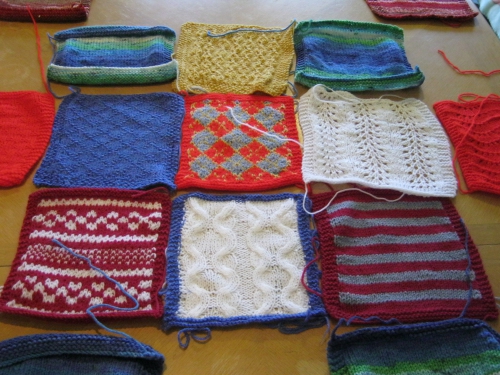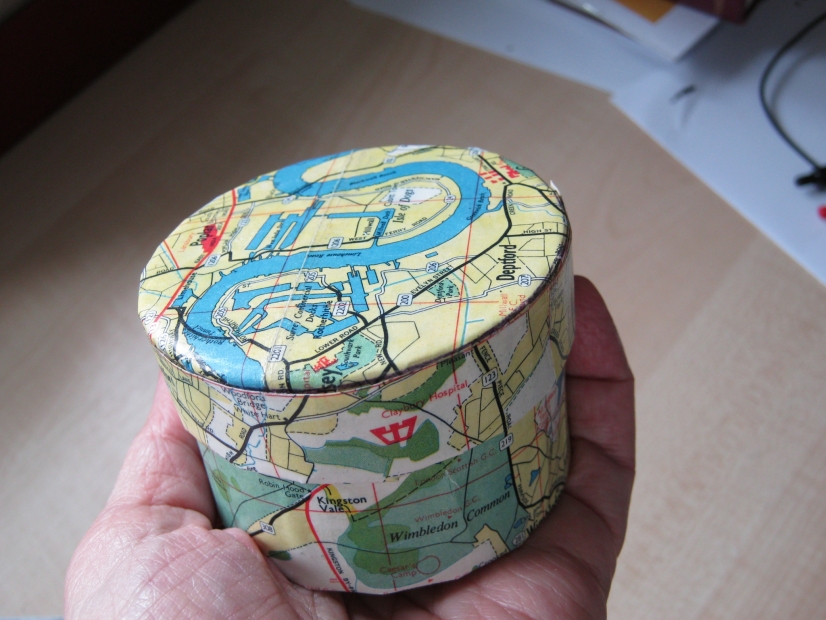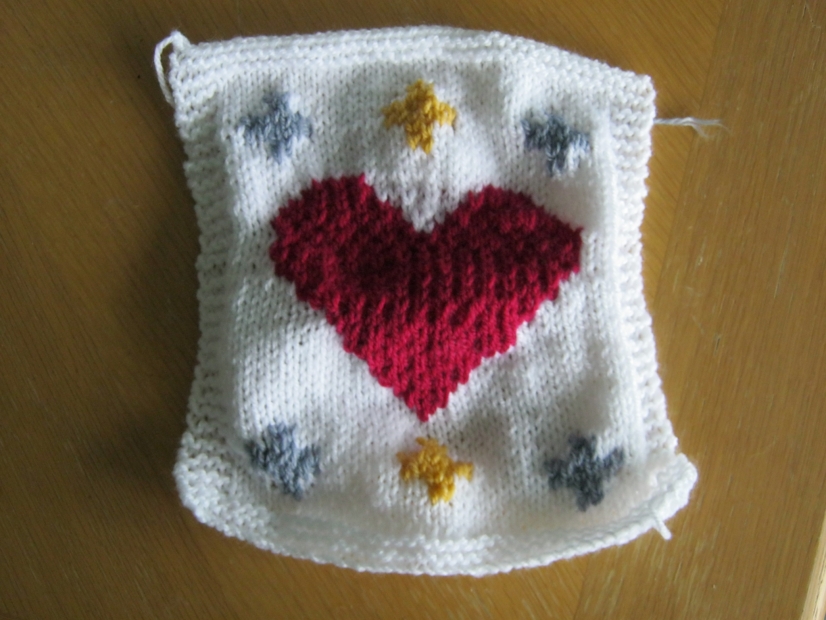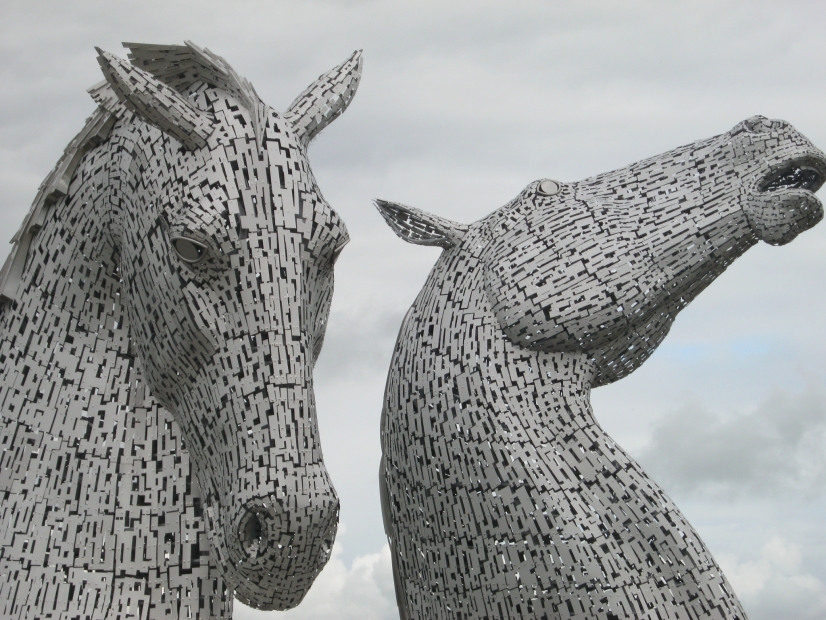This is "Square" number eighteen for the blanket I'm knitting for the charity 'Sent With Love'.
My orignial plan was to make a few squares and post them off - each a different design because the thought of knitting endless identical squares seemed interminably dull.
This was fine until it very quickly became clear that despite using the same weight of wool and the same number of stitches, some patterns inevitably emerged larger or smaller than others. My notionally 20cm squares varied from 18 cm to 22 cm.
So I realised that I'd better carry on and knit a full set of 'squares' and make a full blanket.
It has been fun, I've discovered 'magic arran' and 'self striping' yarn, that produces stripes and patterns due to longish regular lengths dyed in different colours. I have done fairlisle and arran patterns, and rediscovered textures and techniques I had long forgotten.
And I have a right old assortment of 'squares' that need some sort of order bringing to them in order to make a blanket that isn't a total eyesore!
So I have been laying out the squares and working out how to arrange them so that it looks resonable, and deciding what less exotic squares are needed to fill the gaps...

A bit like life really - the weird and wonderful is important and delightful, but without some routine and structure it degenerates into total chaos.
I began the knitting as part of a response to the news that folk I knew had received blankets from this charity, one of whom enjoyed its comfort for only a couple of weeks. The charity now has a waiting list of people to send blankets to - even though a few of their crochet contributors seem to make a blanket a day! It would be sad to think of someone on that list never quite receiving a blanket. So I suppose part of the motivation to get on with this blanket is recognition of the fragility of life.
This 'heart' square was my own design, the colours oddments I had left from other squares that I wanted to use up.
It was also a very deliberate choice.
A symbol of love. Love given and love received.
A symbol of remembrance. For P who loved her blanket, and for others whose lives, however briefly, intertwined with mine, including A whose I was privileged to marry and a few days later to lay to rest.
A symbol of gratitude. For those who loved, and continued to love me; for those whose professional care continues to give me good health; for live itslef.
A symbol of hope. Good wishes to whoever eventually receives the finished blanket. Hope that, in the end, it all be OK. Hope that, in God, all will be be well.
Another twelve squares, some sewing up (a whole parable in itself!) and a border.
I am setting myself a target date for completion - but if I miss it, so be it. This is not a task to complete, it is a creative expression of life in all its fullness.



